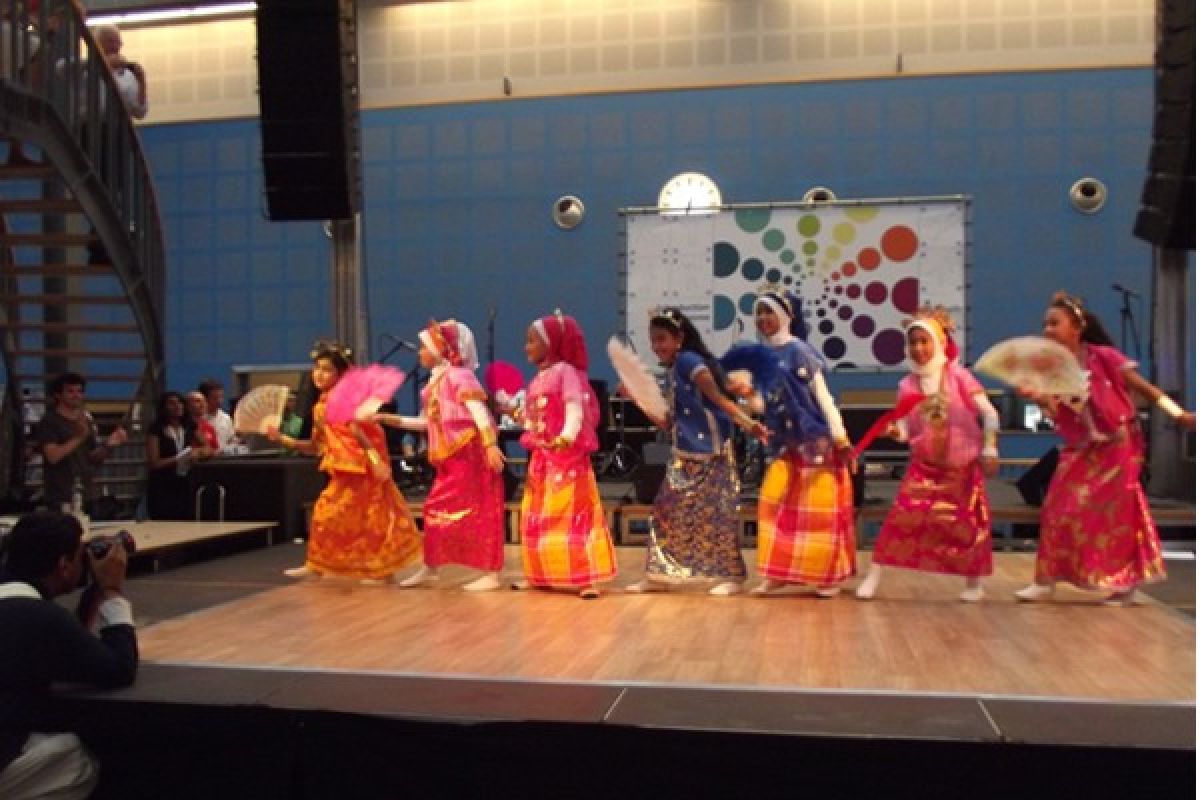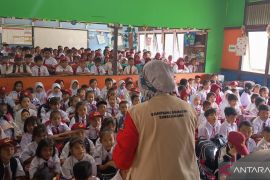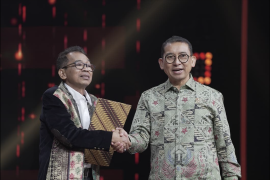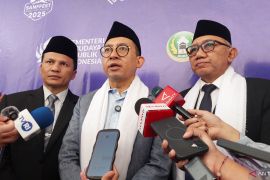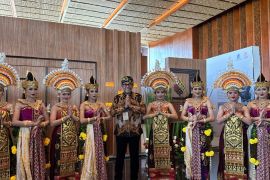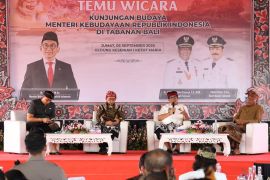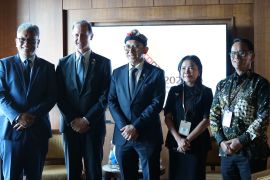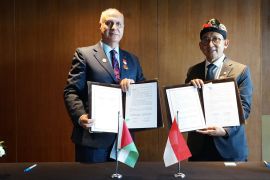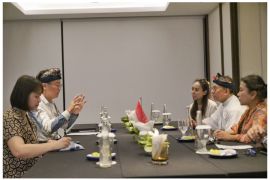The event is the final series of the introduction program to welcome new international students who will study at the technology university at the undergraduate and master levels.
Indonesian students who are members of the Indonesian Students Association (PPI) Delft performed traditional dance Jali-jali from Betawi (another name of Jakarta) and Sipatokaan from North Sulawesi which were carried by Indonesian children.
Meanwhile some typical snacks and drinks provided by the event organizer included lemper (Indonesian snack of chicken wrapped in sticky rice), fried bananas, fried tempe (soya bean), kelepon (sweet rice balls stuffed with coconut sugar), bakwan (fried meal consisting of vegetables and batter) and cendol ice (a traditional Indonesian desert made from shaved ice, coconut milk, starch noodles and palm sugar).
According to Chairman of PPI Delf Sayuta who is currently studying for a master degree in Engineering Policy Analysis program, the event was an opportunity to introduce Indonesia in front of the international community.
"TU Delft is a great university of technology in Europe even in the world with tens of thousands of students coming from different countries. This is our chance to show our existence and potentials of Indonesia which is rich in cultures to the international community," Sayuta said here Friday.
Appreciation
Jali-jali dance performed by five Indonesian students who are now studying in a master program at Institute for Water Education (Unesco-IHE), Delft, amused the audience although the preparation was limited.
"We are not professional dancers and the time for exercise was short as we had to adjust ourselves to a tight class schedule. To be honest, I was a bit nervous but once I saw the festive atmosphere stage was crowded with excited audience, I became relaxed and cheerful," dancer Kuntarini Rahsilawati said.
The enthusiasm of the audience increased few moments following the appearance of seven little girls dressed in typical Makassar (South Sulawesi) cloth with fans in heir hands, while stomping their feet following the music rhythm. The audience spontaneously applauded just to hear the Sipatokaan song.
The fifteen minute performance of Jali-jali and Sipatokaan dances quite amazed the audience and even some people lauded the show.
"They are so wonderful," an event organizer of the introduction program for TU Delft international students 2012 Valia Gkeredaki said, hoping that next year PPI Delft would show the traditional Indonesian dances again.
The typical Indonesian snacks also got positive comments. Of some snacks available at the PPI stand, bakwan was the most popular foods for the visitors.
"All the foods ran out and the most demanded is bakwan," a member of PPI Delft Louis Marcel said.
Two students from Iran Samaneh and Dena expressed appreciation to the Indonesian students� performances and the foods provided.
"Indonesian people are perfect. The food is delicious. I like the fried bean (tempe)," said Samaneh who was of the same opinion with Dena.
In addition to these snacks, Indonesian students also make a sort of challenge for visitors to eat two pieces of Maicih crispy chips (cassava chips from Bandung (West Java) with a super-spicy flavor.
According to Marcel, the challenge was called `Indonesian Fear Factor` and it attracted visitors because not only the burning tongue-spicy taste which made it interesting but also a gift for those were able to eat two pieces of chip.
"If one could eat just two pieces of Maicih chip heor she deserves typical Indonesian keychain in the form of wayang (traditional puppet) or batik. It also promotes Indonesian cultures," Marcel said, adding that western people who tried to taste the chips could not bear the spicy taste
Support
The PPI Delft performance at the multicultural event at TU Delft involved almost all Indonesian students taking bachelor, master and doctoral degrees both at TU Delft and the Institute for Water Education (UNESCO-IHE).
In addition, Indonesians who have beern long living in Delft, the Hague and Schiedam also gave their supports to the students� participation in the cultural event.
The seven children aged between 8 and 11 years old who carried Sipatokaan dance are those who have long been living in the Netherlands. Some of their parents are studying in Delft.
Nida Mufidah and Rufaidah Assyifa expressed their happiness and were proud after performing Sipatokaan.
Although they are not fluent in Bahasa Indonesia, the two sisters who are still in elementary school, said they are willing to come back next year to perform in the cultural event carrying traditional Indonesian dances.
Meanwhile the dance coach who is also a doctoral student at TU Delft, Ida Nurhamidah, said the children were very excited to bring the traditional dance at the TU Delft campus, although they only conducted dance exercise three times, they looked pretty good and even won praises from the audience.
"This is a way for the children to know their culture and raise the confidence to perform in front of people," she said.
Similar comment came from Sunarti Hersink who has been living for 15 years in the Netherlands. She said the Indonesian children who were born and grown up in the Netherlands must recognize their traditional culture.
Support was also obtained from the Indonesian Embassy in The Hague by the presence of educational and cultural attache Ramon Mohandas.
"The performance is very lively, great and excellent. It is a pride. This is the first time in Delft and should be continued to show the international community in order to make Indonesia more popular," he said.
Regarding the international community`s impression, especially in both the TU Delft or IHE campuses, Sayuta said they always give good impressions to the Indonesian people, including students.
"They often say that although the Indonesian people are very diverse in terms of ethnic groups, they have high spirit of kinship. Our cultural and tenacity attitude are also highlighted by the international community," Sayuta said.
(KR-LWA/B005)
Reporter: Libertina Widyamurti Ambari
Editor: Jafar M Sidik
Copyright © ANTARA 2012
